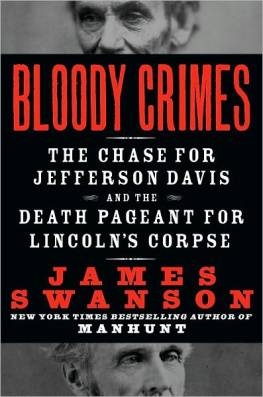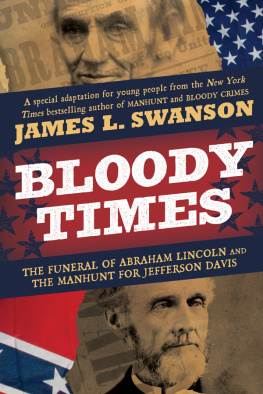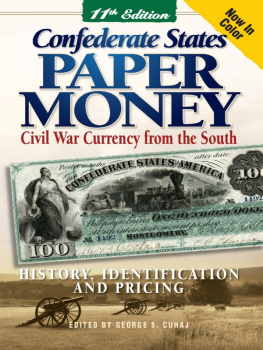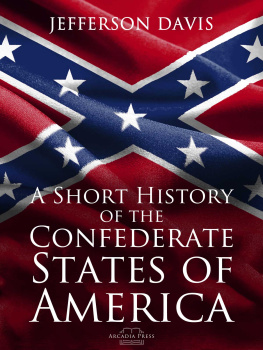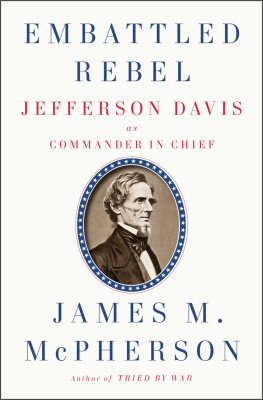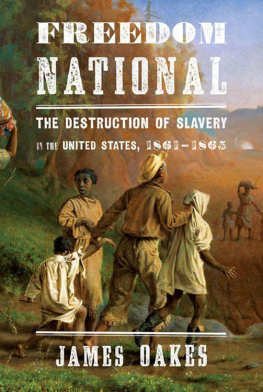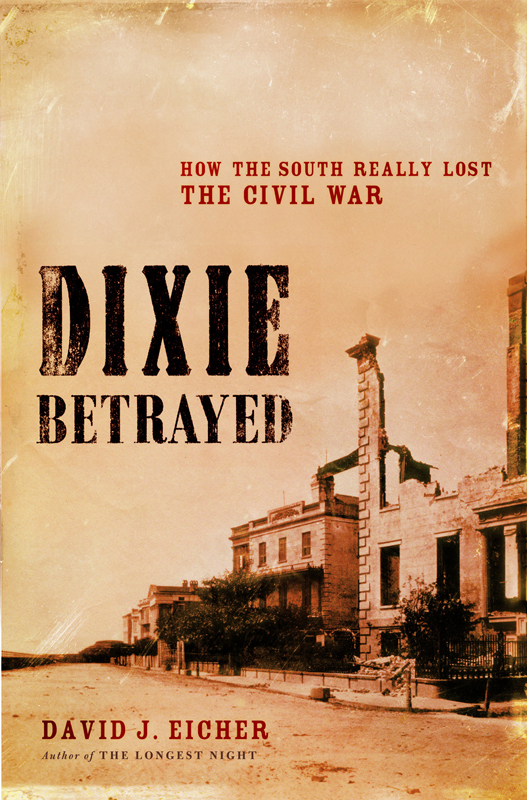Copyright 2006 by David Eicher
All rights reserved. No part of this book may be reproduced in any form or by any electronic or mechanical means, including information storage and retrieval systems, without permission in writing from the publisher, except by a reviewer who may quote brief passages in a review.
Little, Brown and Company
Hachette Book Group
237 Park Avenue, New York, NY 10017
Visit our website at www.HachetteBookGroup.com
www.twitter.com/littlebrown
The Little, Brown and Company name and logo are trademarks of Hachette Book Group, Inc.
First eBook Edition: March 2006
ISBN: 978-0-316-07571-8
Also by David J. Eicher
Gettysburg Battlefield: The Definitive Illustrated History
The Longest Night: A Military History of the Civil War
Mystic Chords of Memory: Civil War Battlefields and Historic Sites Recaptured
Robert E. Lee: A Life Portrait
Civil War Battlefields: A Touring Guide
For Chris Eicher, who already knows the meaning of the worst events in world history, and how they make us appreciate the best events even more
It seems to be a law of humanity that generation after generation must rescue its liberties from the insidious grasp of a foe without or within. In our case, we have to seize them from both.
Lawrence M. Keitt
Revolutions are much easier started than controlled, and the men who begin them, even for the best purposes and objects, seldom end them.... The selfish, the ambitious, and the bad will generally take the lead.
Alexander H. Stephens
I think it important that we should at least seem united & harmonious to the enemy.
Clement C. Clay
I T was a typical Virginia spring morning, with a slight breeze cascading and the sweet smell of honeysuckle permeating the humid air. Shafts of bright sunlight shot down through the canopy of forest and illuminated patches of dusty ground. Dense thickets of brush intermingled with the scratchy sounds of life among it; squirrels darted through last falls leaves; rabbits and raccoons made peace with the forest floor and stayed put, holed up against the commotion of the outdoors. In the distance could be heard faint, shrill tones of music together with the crackle and boom of drums as well as the snapping branches and shuffling leaves as men marched in loose form.
The peace and beauty of the Wilderness, a forested area in Virginia west of Fredericksburg, masked a deepening Southern desperation.
Ulysses Grant and George Meade were bearing down on Richmond, which had narrowly avoided capture two years earlier. Vicksburg had fallen the previous summer, as Robert E. Lees raid into Pennsylvania failed. Now a Yankee drive deep into Georgia was coming. Federal ships had been tightening control of the coast for months, leaving few seaports open. And the Confederacys largest city, New Orleans, had long ago fallen to the Union.
Yet there was something powerfully spiritual about this Confederacy: a deep optimism that it would survive, gain independence, and live on as something great. For most Confederates, even the leaders, there was no other way to think. Most of the credit went straight to Providence. Despite some downfalls since the autumn of 1862the retreats from Kentucky and Maryland, the losses at Vicksburg and Gettysburgthe Confederacy had whipped the Yankees at Chickamauga in the autumn of 1863. Three years of hard fighting had shaken the rabble out of the ranks of the Confederate armies; now a core of battle-hardened veterans remained, supported by a fringe cast of increasingly older and younger marchersall true believers in the Cause. Now, if they could beat back Grant, the war might come to a close with a Southern nation intact.
The month of May 1864 was just a few days old.
In the Twenty-first Virginia, making its way into the Wilderness, Sgt. John H. Worsham no sooner heard the word Forward! than he found the regiment struck by Yankee fire. Suddenly Worsham and his comrades scrambled and shot back, striking into the Union front, reloaded, and fired madly. The men were armed with a mixture of Springfield and Enfield rifles, Mississippi rifles, and old flintlock smoothbore muskets. In an instant the battle was on, and the crackle of musketry rang out among the line, claps of bullets striking trees behind the Virginians and swishes of mini balls sailing through the air carrying reminders to stay down. As Worsham slowly moved forward, he stopped when he saw a gun protruding from an old tree stump, a Yankee crouched behind it. Throw down your gun! Worsham shouted; but before the Union soldier could act, another young boy in Confederate gray shot him dead. Earlier this same boy had been left by the roadside in tears because he seemed too young to keep up with the march.
Pressing on, the Twenty-first Virginia took prisoners and moved toward a pine thicket that shrouded a concentration of the enemy. Now the heavy thud of cannon could be heard in the distance, and all knew a general battle was taking place. Just as Worsham and his comrades settled on the edge of a field and began to fire at more Yankees, both groups of Americans saw an odd sight. The firing dwindled as more and more men watched. One Union soldier and a lone Confederate had slid down into the same gully for protection, into close quarters. After seeing each other and exchanging pleasantries, the two men walked out into an adjacent road and started a fist and skull fight. All the soldiers within view watched in disbelief. A yell went up across each line, and the Johnny eventually pinned the Yank and brought him back into the Confederate line as a prisoner. This surreal stoppage, in the midst of the start of a great battle, must have given everyone there pause.
AT twenty-four, John Worsham was no ordinary Southerner. Born into the middle class of Richmond, the son of a merchant tailor, he grew up in a three-story brick home at the corner of Seventh and Broad streets. Worsham received a good education at Richmonds Shockoe School for Boys and then took his first job at Winston and Powers, Commission Merchants, as a clerk. He was descended from early Virginia settlers, prominent men in Henrico Shire as early as the 1640s. Among the early family associates was Colonial official William Byrd. As with all young Southerners in 1861, Worsham was smitten with patriotic fever. He felt a special connection to the powers that were forging this mighty contest for Southern independence; he could count Joseph Mayo, the mayor of Richmond, among family friends.
Worsham joined a Richmond militia unit known as F Company on April 1, 1861, and twelve weeks later he was mustered into the Twenty-first Virginia Infantry under Col. William Gillam. He went to fight, as did all Confederate boys, with high hopes for absolute success in wresting the new nation away from the tyrannical government of Abraham Lincoln. Worsham and his comrades got their first taste of war in western Virginia. We are having rather a gay time, he wrote his sister, marching over mountains with roads as Rocky as can be, and so crooked that we sometimes go over the same place two or three times.
In the spring of 1864, Worshams hometown was reeling from a recent raid by Union cavalry on the outskirts of the city and by the escape of Federal officers from Libby Prison down on the James River. Another shock to Richmond came when little Joe Davis, the presidents son, fell to his death at age five from a second-story piazza at the Confederate White House. Yet life went on. Sallie Putnam, just nineteen and with ultrapatriotic aspirations, spent countless hours as a nurse in the citys hospitals. So long had the campfires glowed around Richmond, Putnam wrote, so long had we breathed the sulphorous [


